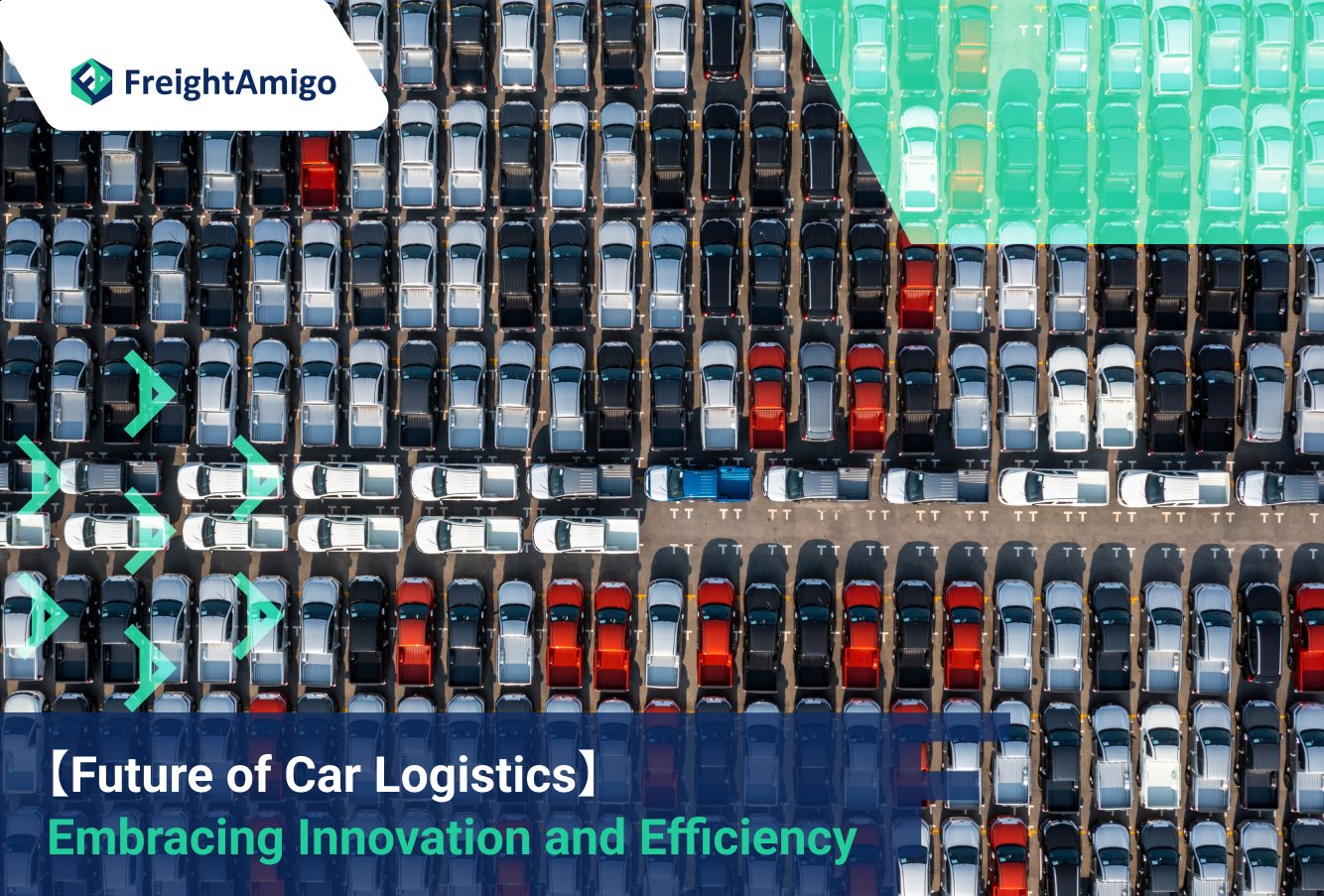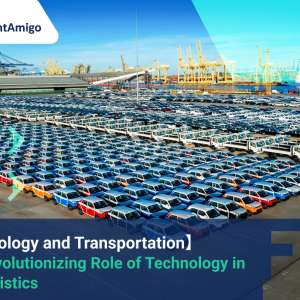The automotive industry is undergoing a significant transformation, driven by advancements in technology, changing consumer preferences, and the need for sustainable transportation solutions. As the industry evolves, so does the logistics sector that supports the movement of vehicles, parts, and raw materials across the globe. In this article, we will explore the future of car logistics, speculating on the potential impact of trends such as electric and autonomous vehicles, drone deliveries, and emerging technologies like blockchain and artificial intelligence. We will also discuss the importance of improving the customer experience and embracing innovation to stay ahead in this rapidly changing landscape.
Latest update on 22 February, 2024 by Caspian Ng– Marketing Analyst at FreightAmigo
Want to compare the best Express, Air Freight, Sea Freight, Rail Freight & Trucking rates so as to have better control on cost?
Embracing Electric and Autonomous Vehicles
One of the most significant trends shaping the future of car logistics is the rapid rise of electric vehicles (EVs) and autonomous vehicles (AVs). As governments and consumers prioritize sustainability and seek cleaner transportation options, the demand for EVs is expected to surge in the coming years. This shift towards greener mobility presents new challenges and opportunities for logistics providers.
Electric Vehicle Logistics
The increased adoption of EVs necessitates the development of a robust charging infrastructure and efficient supply chain management. Logistics companies will need to establish partnerships with charging station operators, ensuring that EVs are adequately powered during transportation. Additionally, the transportation of lithium-ion batteries, a crucial component of electric vehicles, requires adherence to strict safety regulations.
Autonomous Vehicle Logistics
With the emergence of AVs, the logistics landscape is poised for a revolutionary transformation. AVs have the potential to disrupt traditional car manufacturing, ownership, and transportation models. As autonomous technology evolves, logistics providers will need to adapt their operations to accommodate the unique requirements of AVs. This includes developing specialized loading and unloading systems, implementing advanced tracking and monitoring technologies, and ensuring seamless integration with smart city infrastructure.
The Rise of Drone Deliveries
Another exciting development in car logistics is the use of drones for last-mile deliveries. Drones offer a cost-effective and efficient solution for delivering small packages directly to customers’ doorsteps. In the context of car logistics, drones can be utilized for delivering spare parts, documents, and other lightweight items, reducing delivery times and increasing customer satisfaction. However, regulatory challenges and safety concerns need to be addressed before drone deliveries become commonplace in the industry.
Harnessing the Power of Emerging Technologies
In addition to electric and autonomous vehicles, emerging technologies such as blockchain and artificial intelligence (AI) are poised to revolutionize the car logistics industry. These technologies have the potential to streamline operations, enhance transparency, and improve efficiency across the supply chain.
Blockchain in Car Logistics
Blockchain technology offers a decentralized and secure platform for recording and verifying transactions. In the context of car logistics, blockchain can provide enhanced traceability, reducing the risk of counterfeit parts and improving supply chain visibility. Smart contracts enabled by blockchain can automate payment processes and facilitate seamless collaboration between different stakeholders in the logistics ecosystem.
Artificial Intelligence in Car Logistics
AI-powered technologies, such as machine learning and predictive analytics, can drive significant improvements in car logistics operations. By analyzing vast amounts of data, AI algorithms can optimize route planning, predict maintenance needs, and identify potential bottlenecks in the supply chain. This enables logistics providers to minimize costs, reduce delivery times, and improve overall operational efficiency.
Enhancing the Customer Experience
As the automotive industry evolves, customer expectations are also changing. In an increasingly digital world, customers demand convenience, transparency, and personalized experiences. Car logistics providers must prioritize customer-centric approaches to stay competitive in this evolving landscape.
Real-Time Tracking and Communication
One of the key elements in enhancing the customer experience is real-time tracking and communication. Providing customers with accurate and up-to-date information about the status of their vehicle deliveries builds trust and reduces anxiety. Advanced tracking technologies, such as GPS and IoT sensors, enable logistics providers to offer real-time updates on the location, estimated time of arrival, and any potential delays in the delivery process.
Streamlined Documentation and Paperwork
Traditional car logistics often involves complex paperwork, including customs documentation, vehicle registration, and insurance forms. Leveraging digital solutions, such as electronic document management systems, can streamline these processes, reducing administrative burdens and improving efficiency. Digitized documentation also enables faster and more accurate data sharing between different stakeholders, ensuring a smoother flow of information throughout the logistics chain.
Seamless Integration with Mobility Platforms
As mobility services continue to expand, car logistics providers have an opportunity to integrate their services with mobility platforms. By partnering with ride-hailing companies, car-sharing services, and other mobility providers, logistics companies can offer seamless end-to-end solutions for vehicle transportation and mobility needs. This integration not only improves convenience for customers but also opens new revenue streams and business opportunities.
Conclusion
The future of car logistics is characterized by rapid advancements in technology, changing consumer preferences, and the need for sustainable transportation solutions. Electric and autonomous vehicles, drone deliveries, blockchain, and AI are reshaping the industry and presenting new opportunities and challenges for logistics providers. By embracing innovation, prioritizing the customer experience, and staying ahead of emerging trends, car logistics companies can position themselves as leaders in this dynamic and evolving landscape. As the industry continues to evolve, collaboration between stakeholders, regulatory frameworks, and ongoing investments in research and development will be crucial to unlock the full potential of car logistics in the future.
There are different options for cargo transportation. If you want to choose the most convenient and suitable solution, it is best to have the full support of logistics experts! If you are looking to revolutionize your logistics solutions, please visit FreightAmigo page for inquiries.
Read More:
How Technology is Revolutionizing the Trucking Industry
The Art of Order Fulfillment: Strategies for Success in an E-commerce World
【AI Integration in Supply Chain】 Revolutionizing Last-Mile Delivery
Simplify Your Car Logistics: A Step-by-Step Guide to Shipping Your Vehicle
If you have any inquiries on logistics/supply chain, feel free to contact FreightAmigo now:
Chat with us online | Hotline: +852 28121686 | WhatsApp: +852 27467829



